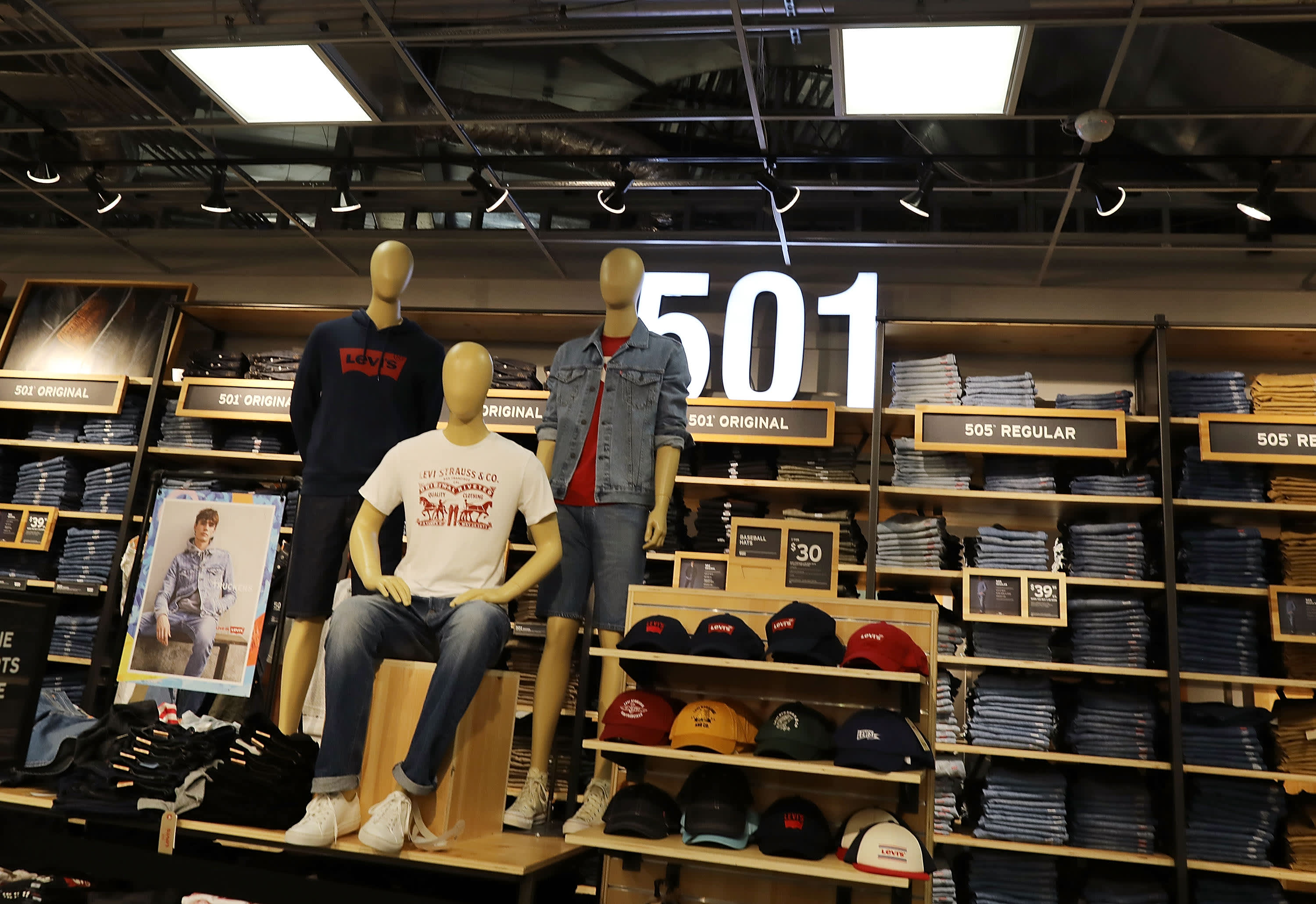Products You May Like
Levi’s clothes are seen on a store shelf in Miami, Florida.
Joe Raedle | Getty Images
Levi Strauss & Co. reported Wednesday its total holiday-quarter sales dropped 12%, marking an improvement from a more than 20% decline in the prior period, as weak shopper traffic at its stores was partially offset by double-digit growth online.
Shares were recently up more than 1% in after-hours trading after initially falling more than 4%.
Chief Executive Chip Bergh told CNBC that the results for the latest quarter topped the denim maker’s internal expectations, nearly meeting the “best-case scenario” that Levi laid out back when the Covid pandemic first started to hit the United States and disrupt many businesses.
“We pivoted very hard to [direct to consumer] and especially to e-commerce,” Bergh said in a phone interview. “Our e-commerce business was profitable in the fourth quarter, and profitable for the full year.”
Levi’s global digital sales, which include the online sales of its merchandise at wholesale partners, made up 23% of fourth-quarter sales, up from 15% in the prior-year period.
Here’s how Levi Strauss & Co. did during its fiscal fourth quarter compared with what analysts were expecting, using Refinitiv data:
- Earnings per share: 20 cents, adjusted, vs. 15 cents, expected
- Revenue: $1.39 billion vs. $1.34 billion, expected
For the three-month period ended Nov. 29, Levi earned $57 million, or 14 cents per share, compared with $96 million, or 23 cents per share, a year earlier. Excluding one-time charges, it earned 20 cents per share, which was better than the 15 cents expected by analysts, using Refinitiv data.
Net revenue fell 12% to $1.39 billion from $1.57 billion a year earlier. That was better than the $1.34 billion forecast by analysts.
Digital sales globally were up 34%, which includes sales made on its partner platforms like Amazon.
Levi said revenue from its wholesale partners dropped 15% during the quarter, while its direct-to-consumer revenue was down 5%, due to lower visits to its stores.
As the coronavirus pandemic continues to disrupt normal business operations, the company said that currently roughly 40% of its stores in Europe, and 17% globally including franchisee-operated locations, are closed.
“The recent resurgence of the virus underscores that the ultimate impact of the Covid-19 pandemic remains highly uncertain,” Levi said in its earnings release. “The company expects that its business … will continue to be significantly adversely impacted for at least the first half of 2021, and there remains the possibility of additional Covid-19 related inventory and other charges.”
Levi shares, as of Wednesday’s market close, are up a little more than 8% from a year ago. The company has a market cap of $8.8 billion.

